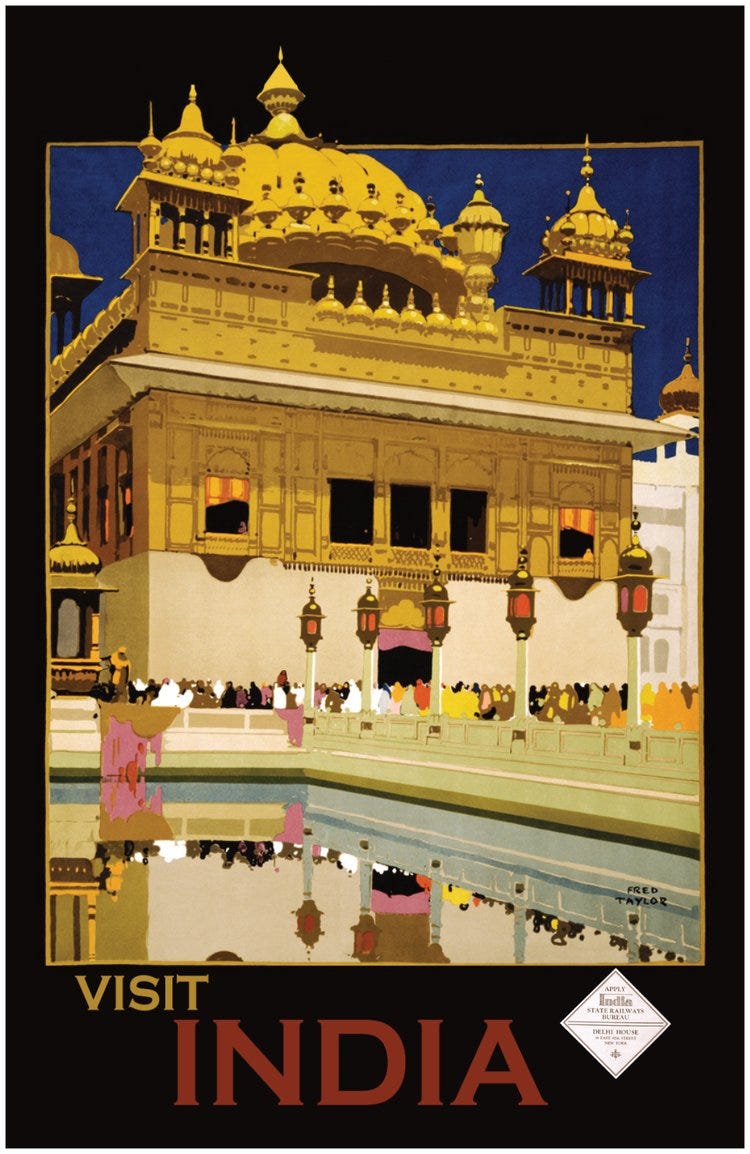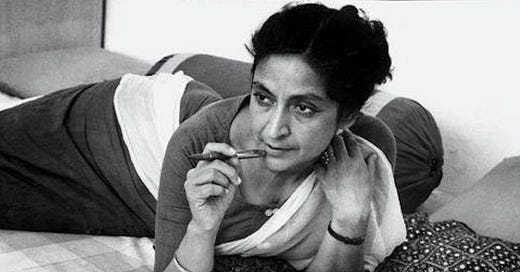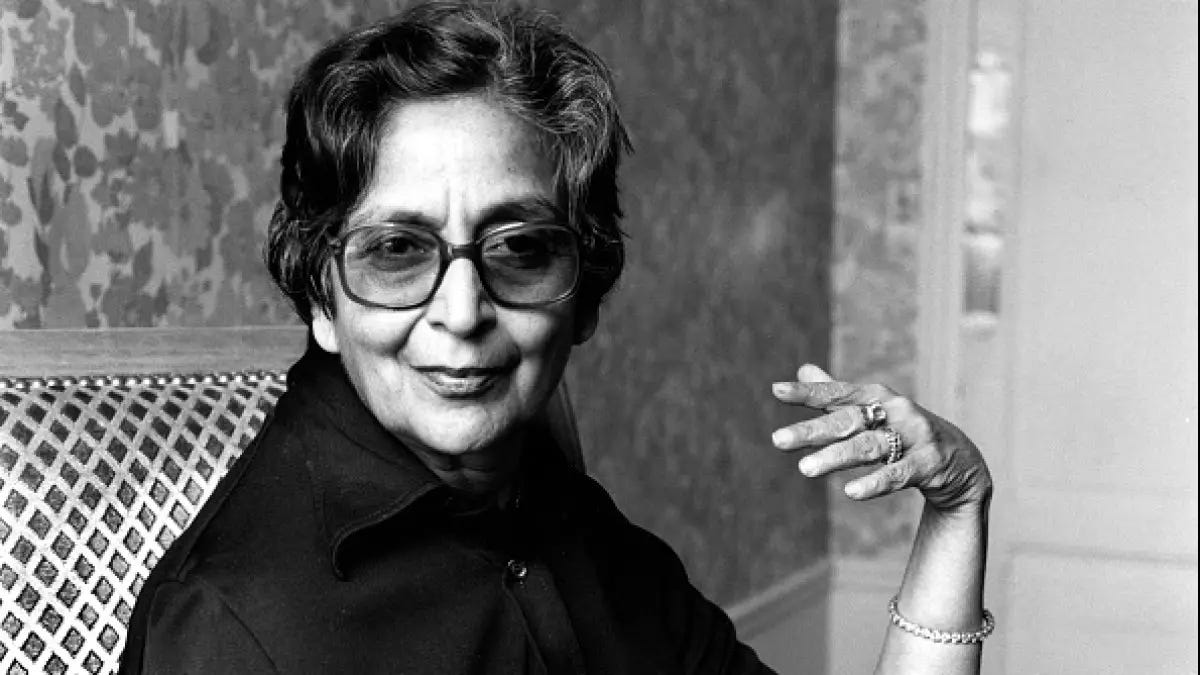Welcome to the Brown History Newsletter. If you’re enjoying this labour of love, please do consider becoming a paid subscriber. Your contribution would help pay the writers and illustrators and support this weekly publication. If you like to submit a writing piece, please send me a pitch by email at brownhistory1947@gmail.com.
Don’t forget to check out our SHOP and our Podcast.

Amrita Pritam: The Poet who Transcends Borders
India and Pakistan, despite being divided by various ideological, religious, and political differences, share the same love for Amrita Pritam, a Punjabi poetess, whose work, even today, unintentionally, continues to conjoin these two disjointed pieces of subcontinent. Transcending religious, social, and cultural boundaries, the impact of her literary career on the lives of both Indians and Pakistanis stands testament to the fact that geographical barriers can’t rub out cultural connections.
A free and liberated woman, Amrita, wrote what she wanted to at a time when a male-dominated society viewed a woman with a prying eye. Her image as the cigarette-smoking, atheist woman living independently with her partner at a time when women were hardly allowed to do anything without male permission truly unshackled the chains of patriarchy.
Born in 1919, as Amrit Kaur, in Gujranwala, Punjab (now part of Pakistani Punjab), Amrita was a precocious child, publishing her first collection of poems Amrit Lehren (Immortal Waves) at the age of 16, which was also the age she married her husband Pritam Singh and acquired her last name, Pritam. Daughter of Raj Bibi and Kartar Singh Hitkari, Amrita took after her father, inheriting her literary flair from him, who, along with being a Sikh Pracharak (preacher), was also a poet of the Braj Bhasha language. When she was eleven years old, she was unfortunately bereaved of her mother, the grief of which drove her to poetry. Much to the dismay of her father, this incident also influenced her decision to abandon God and embrace atheism. Amrita would remain an atheist for the rest of her life.
Growing up in a British-ruled impoverished India, Amrita was deeply affected by the abysmal state of living she found the people of her country in, which attracted her to the ideologies of socialism and communism. This was reflected in her involvement with the Progressive Writers’ Movement and her work Lok Peed( People’s Anguish, 1944) which propounded the conditions of the working class poor after the devastating Bengal famine of 1943.
When in 1947, the subcontinent got severed along religious lines, Amrita who was only 28 at the time, became distraught on witnessing the extreme violence, bloodletting and rioting that followed. Seeing her beloved Punjab( one of the worst-affected regions due to Partition) being engulfed in ruination and destruction, the young Amrita wrote a melancholic poem “Ajj Ankhan Waris Shah Nu”( My forlorn eyes search for Waris Nu). The poem was a clarion call to Waris Shah, mostly remembered in the subcontinent for his poem ‘Heer Ranjha’ (a tale of unfulfilled love), to rise from his death and write, as he did for Heer, about the millions of women that are suffering the iniquities of Partition.
The poem, which she wrote on a piece of paper while travelling from Dehradun to Delhi, is seen as one of her most notable works, eternalising her status as a doyenne in the field of Punjabi literature.






